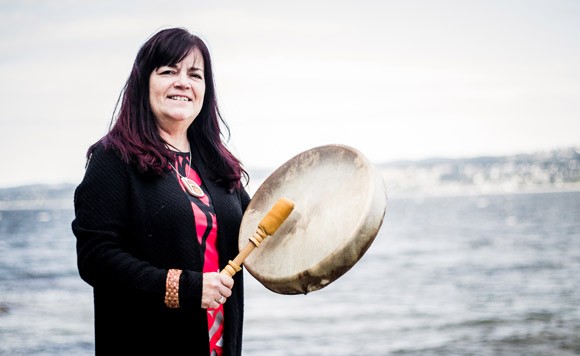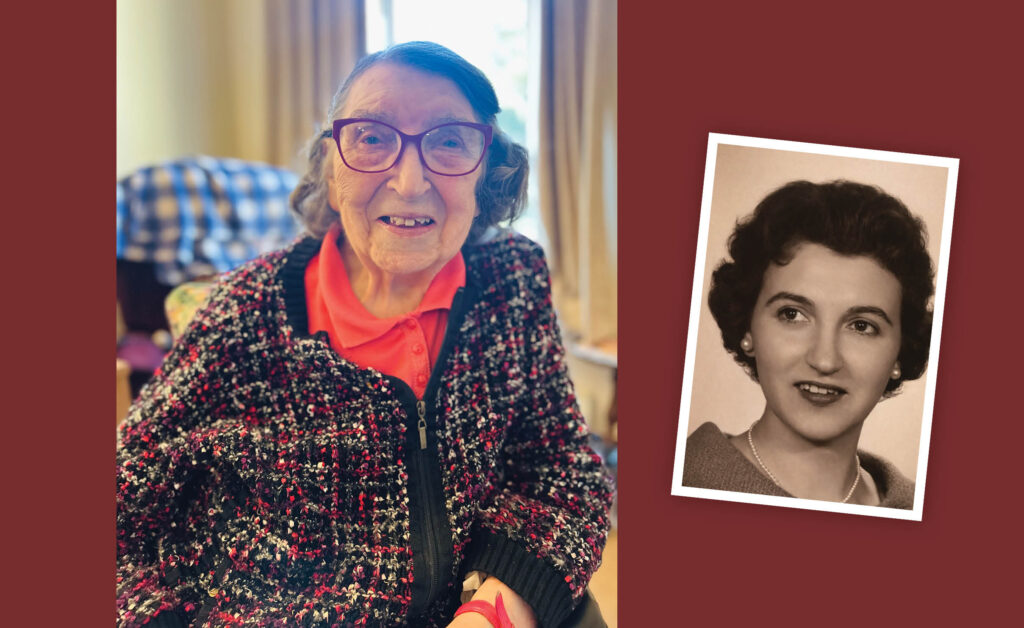by Jo Barnes | photo by Amanda Cribdon Photography
Stories can stir us to action or entertain. They can make us laugh or cry. And sometimes, they can heal.
Local Heiltsuk author, Teoni Spathelfer, recently published her first book, Little Wolf, the first in a three-book series which was inspired by her family history, including their residential school experience.
“Stories are medicine,” shares Teoni. “Little Wolf embodies three generations of women in my family: my mom, myself and my daughter. It’s about sharing my culture, its challenges and victories, and it brings healing.”
Born in Port Alberni, Teoni is of mixed heritage: Heiltsuk Nation on her mother’s side, and European on her father’s side. Growing up, she heard the family stories such as her mother’s experiences at St. Michael’s Indian Residential School. Often Teoni would have dreams triggered by these stories which had a lasting impact on her.
“I had First Nations dreams. They were residential stories and stories of healing,” says Teoni. “When I woke up, I had to write them down. ”
Little Wolf was born out of such dreams and almost wrote itself. “The ideas just flowed,” shares Teoni.
The story is about a young Indigenous girl who gives herself the name Little Wolf. Along with her mother and sister, she moves into the big city. The tale relates how she finds her way in a new environment, deals with racism at school, and finds connections with her culture and the land.
“In the story, the little girl is sitting on the front steps of her grandma’s house. She is looking up at the full moon. She names herself Little Wolf,” shares Teoni. “When wolves howl at the moon, this is how they communicate. It’s positive.
Nature is important and nourishes Little Wolf.”
Targeted for readers aged four to eight, the book boasts vibrant, captivating pictures by local Coast Salish artist and illustrator Natassia Davies. It is the first project of this kind for Natassia, who was inspired by Teoni’s storytelling.
“I have always wanted to illustrate a book!” says Natassia. “Teoni shared the story. It was impactful for me. I could relate to Little Wolf, to someone trying to find their place in the world and their connection to the land.”
Sharing stories is a familiar activity for Teoni, who trained in radio broadcasting at Columbia Academy in Vancouver. She volunteered for Vancouver Co-op Radio, worked in private radio at Squamish Mountain FM radio, and eventually freelanced with CBC Radio and was a regular contributor for BC Almanac. Subsequently, she wrote some articles for Monday, Sunstream, and Seaside magazines.
Outside of her work, Teoni shared the stories from her family in the school setting. The impetus for this began when her daughter was studying First Nations culture in school.
“My daughter’s teacher knew that my mom had gone to residential school in Alert Bay,” shares Teoni. “It was my first presentation in a school, and I did it with my mom.
Over the years Teoni has given talks in many schools all around B.C. The presentations are intended to educate students about residential schools, but they have been opportunities for personal growth and healing.
“My mom’s healing journey from her residential school experiences benefitted her greatly,” comments Teoni. “I noticed the change in tone when she shared her story with my own daughters.”
The arc of her career has now brought her to a place where her story telling has evolved from sharing the stories of others to stories from her own life.
“As a journalist, I have helped others share their story,” says Teoni. “Now I go inward; it’s a different take for me.”
Teoni hopes to not only inspire young readers, but to share her culture with anyone who reads the book.
“My hope is that First Nations children will pick up the book, see themselves in the book, and also see that they can do well in an urban setting,” says Teoni. “I also hope that grandparents can read the book to grandchildren. It’s a way to communicate and share during these Covid times.
Her book is receiving positive feedback, and its story is obviously reaching an audience. Teoni was recently touched by one young boy’s reaction.
“A grade one student at James Bay school said: ‘Everybody should read it!'”
Books are born from the imagination and expressed through words and images. This book is no exception, but for Teoni its origins come both from the place of imagination and from reality.
“In our culture, dreams bring messages that can help and inspire,” notes Teoni. “We are the seed for planting the stories.”
Teoni’s book and the upcoming ones in the series, inspired by her family life experiences, have the potential to illuminate history, educate, and promote healing. The stuff of dreams can be powerful.




